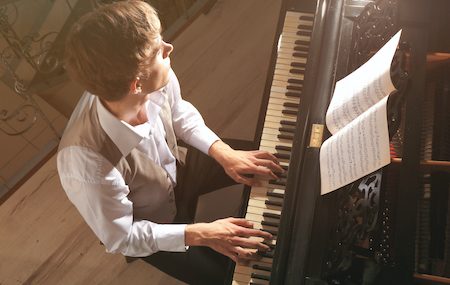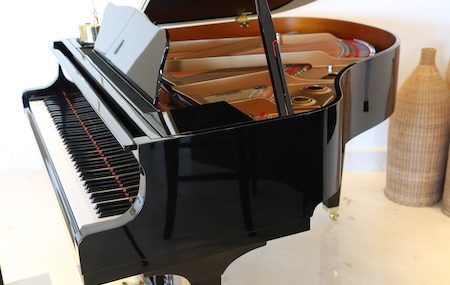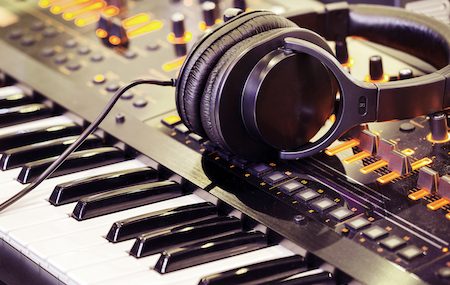What’s the one trait all great piano players have? If you said “practice”, you’re correct.
To get better at anything, it takes a lot of practice. Ever heard of the 10,000 hour rule? According to author Malcolm Gladwell, it takes at least 10,000 hours of practice to master a talent. While the theory has been continually questioned since it was first introduced in his book Outliers a decade ago, it does bring up the idea that greatness lies in positive action.
If you want to develop better habits, it takes commitment. What better way to become a great piano player than to practice every day!
But what does that mean? Sitting down and pounding out the same scales and songs every day would help you reach 10,000 hours, but it won’t do much for your skills or creativity. To be a better piano player, it takes work at making your practice better too. Here’s what we suggest.
1. Start with a better environment
What’s the number one distraction of better practice? Digital devices. Declare your practice session to be digital free – even if you’re using your tablet for reading music or attending a training session. Nobody can play when they hear the constant buzz of text messages coming in, or a ringing phone announcing a new call. Pay attention to the environment you create, and make it as stress-free as you possibly can.
2. Have a pattern to your routine
Sitting down without a plan will quickly make you look for other ways to fill your time. Athletes know they need a few minutes of warming up and cooling down before the intense training session in the middle. Approach piano playing in the same way. Warm up your fingers and wrists with stretches and scales. After your practice, spend a few minutes playing something fun – just for you. This will give you ample time to be comfortable with your playing, and love what you do. Isn’t that the purpose?
3. Recognize your mistakes
Is there a piece you just can’t seem to get right? A passage you’ve been having trouble with for days? Can you not pick up the right speed? Sometimes the best way to correct something is to admit you’re having trouble. Then ask yourself: what can I do to fix this? Maybe it’s spending time on one specific part of a song. Or working with a teacher to correct something you’re doing wrong.
4. Set goals
Few of us do anything without a goal in mind. For piano playing, do you want to play a specific song? Or perform in front of an audience? Or make it your career? They don’t have to be lofty goals, but you should give yourself something to reach for. It’s what keeps you working day after day.
5. Never stop learning
The great thing about playing the piano is there is always something else to learn. If you’re bored with one way of learning, try another. It’s okay to move around to new teachers to try out new things. Give group lessons a try. Join a band. Pick up a new piece of music. The more you challenge yourself, the better you’ll enjoy the process.
To be a better piano player, sometimes it just takes looking at things through fresh eyes. Give yourself a challenge today.










